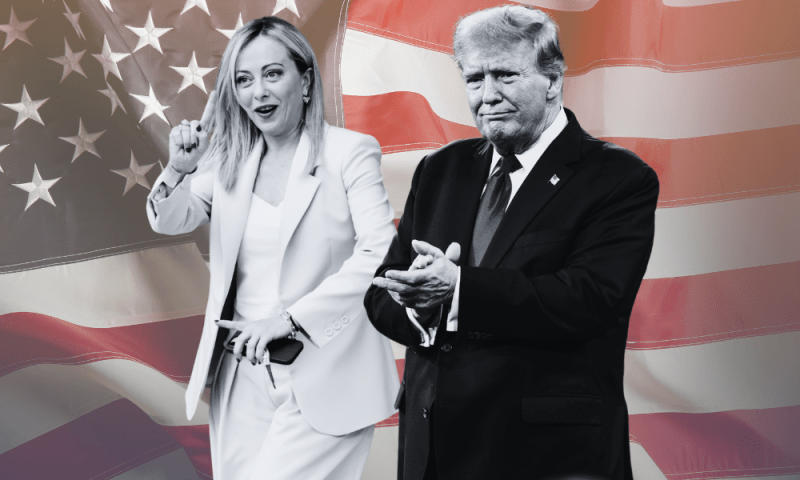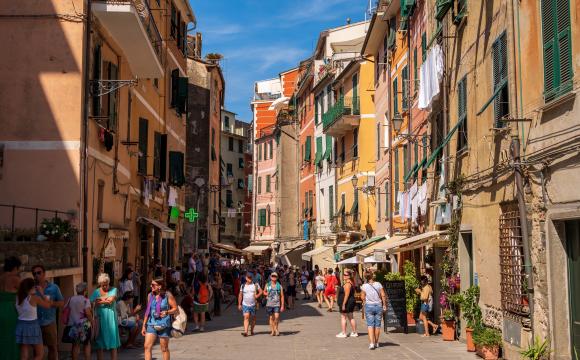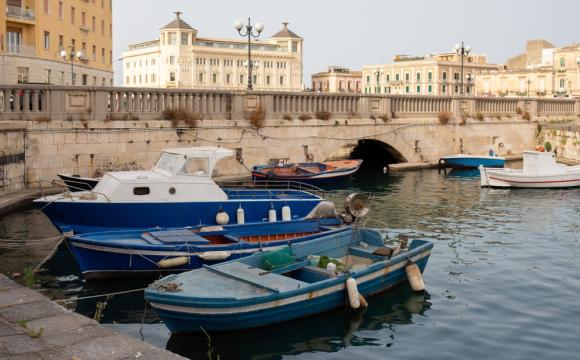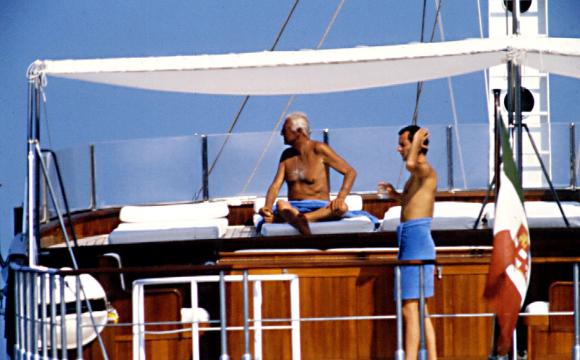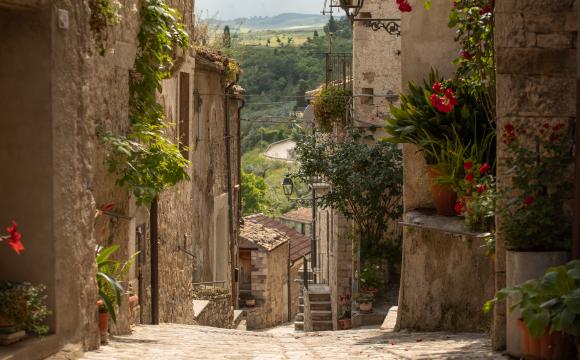All eyes were on the United States this week in anticipation of the presidential election results. Italy was no exception.
A lot was at stake for Europe in this election: economic ties, support for Ukraine, security, European populism.
Trump was declared the president-elect early in the day on Wednesday after winning several key swing states. Congratulations started rolling in from foreign leaders, including Italians, some even before the official results were called.
Italy and the rest of Europe will have to continue to move delicately to prevent relations from souring, as Trump is expected to ramp up the isolationism in his new term.
So, how will Italy navigate a new Trump administration?
Reactions from Italy’s political upper crust
Major political figures in Italy offered their congratulations as Trump’s path to victory became clear, but only one, Lega party leader Matteo Salvini, had explicitly voiced support from Trump in the lead up to the election.
On Wednesday, Italy’s prime minister Giorgia Meloni wrote on X (formerly Twitter), “On my own behalf and that of the Italian government, my sincerest congratulations to President-elect of the United States Donald Trump. Italy and the United States are “sister” nations, bound by an unshakeable alliance, common values and a historic friendship. It is a strategic bond, which I am sure we will now strengthen even more. Good luck Mr. President.”
Salvini, meanwhile, claimed Trump’s victory was a win for “common sense, passion and the future.”
President Sergio Mattarella, on the other hand, congratulated Trump with a not-so-subtle reminder of the “shared democratic values and common adherence to a rules-based international order” between the two countries.
Other Italian political figures like Carlo Calenda, head of the Pro-Europe party Azione, expressed less neutral opinions. Calenda said, “The West is now living in its darkest hour. Separated, weakened and unable to rebuild a leadership based on the values that had made it a point of reference for those who wanted to live in a free and fair system.”
What could a Trump presidency look like for Italy?
Trump’s presidency could have major implications for Europe as a whole, particularly in terms of security and economic stability.
It is uncertain whether Trump will follow through with his threats to leave NATO, but it’s likely that he will disrupt the organization and require more from European countries in the agreement.
In the past, Trump has demanded the other countries spend at least 2% of their GDP on defense and Italy currently sits at 1.49%, a figure that is expected to drop further. This fact won’t sit well with the president-elect.
Since the invasion of Ukraine, other countries have started to meet that 2% demand, but Italy still lags in its defense spending.
The war in Ukraine is another major issue that Trump’s return to power could shake up. Experts believe his plan to end the war “before I even arrive at the Oval Office, shortly after we win the presidency” would consist of ceding desired Ukrainian territories to Russia and refusing NATO membership to Ukraine.
Trouble may be on the horizon for the European economy as well.
European Commission data shows that the EU exported €502.3 billion in goods to the US in 2023 — a fifth of all non-European Union exports. Trump’s proposed 10% universal tariffs on all imports could therefore cause issues with the European economy.
Italy is the second largest exporter of goods to the US, with €67.2 billion in exports in 2023. Analysts have mixed evaluations, with some believing this could cause a 0.4% decrease in Italy’s GDP, and others saying it would decrease by much less (just 0.01%).
Nonetheless, trade conflicts could cause growth to lag and impact certain industries that are trade-dependent, like cars and chemicals. Italy’s largest sector for exports to the U.S. is cars and boats, followed by machinery, textiles, apparel and leather goods, and food and beverages.
Another way that the impact of Trump’s win will be felt across Italy and the EU is the further normalization of populist parties. For many right-wing to far-right leaders, Trump has been a model of how to ignite a base, win and win again.
Far-right parties are slowly coming to power in more countries, with Meloni’s Fratelli d’Italia (Brothers of Italy) serving as a prime example, and are a growing presence in the European parliament. The Trump victory adds fuel to their fire.
What do Italians think?
According to a poll conducted for Sky TG24, when asked who they would vote for if given the opportunity, 57% of Italians said they would choose Democratic candidate Kamala Harris, as opposed to 20% who would vote Trump.
These numbers shifted according to political affiliation, but the Italians surveyed were overwhelmingly pro-Harris, with the exception of Lega voters.
The survey also addressed concerns within the Italian electorate. 49% of respondents said they thought a Trump victory would put American democracy “significantly or highly” at risk. The issues those Italians surveyed hope to see the new president address are those closest to home, like relations with the EU and stability in the Middle East.
It’s clear that most Italians understand the weight of this outcome and the ripple effect it will have beyond U.S. borders.
Where does Meloni stand?
In 2022, Meloni was the guest of honor at the Conservative Political Action Conference in Washington, D.C.
“Dear friends, this is the second time I stand on this stage,” she said at the event. “The first time I was invited here as the leader of a small but proud Italian Conservative Party. Today I address you as the president of the European Conservative Party, a party that brings together 44 patriotic and conservative parties in Europe and the rest of the world, including the American Republican Party. And I address you as the leader of Fratelli d’Italia, which since then has grown to be the main Italian center-right party and according to many recent polls, even the largest party in the country.”
She since became the prime minister, rising to popularity in part by taking a page out of Trump’s book of populism. But Meloni has been careful not to overstep with leaders on the other side of the fence. Unlike Salvini, she had been tight-lipped about whether she favored a candidate in this year’s elections.
But when it came to election day, Meloni was quick to congratulate the president-elect.
It’s possible that she could become a key bridge with a more isolated White House under Trump, given their political affinities, shared ally in Elon Musk, and Meloni’s expanding influence within Europe. She is the most likely candidate to become his closest European confidant.
